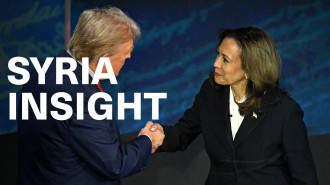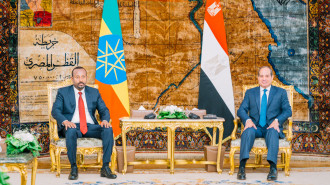Trump's tightrope walk to establish Syrian 'safe zones'
President Donald Trump's stated goal of establishing "safe zones" in Syria will likely involve working with both Turkey and Turkey's enemy, the Syrian Kurds, who between them control northern Syria.
On January 25, the US president declared, characteristically without giving any details, that he would "absolutely do safe zones in Syria", to give Syrians who would otherwise flee the country an area where they could remain safe within their own borders.
A document seen by Reuters indicates that the president will order the Pentagon and the State Department to craft a plan to make his order a tangible reality.
His comments come as Turkey is investing resources into its own so-called safe zone in a part of northwestern Syrian border territory currently controlled by its military. Turkey has long advocated the idea since the start of the Syrian war, and is taking steps to make it a reality since intervening in northwest Syria last August.
On January 23, Turkey's Deputy Prime Minister Numan Kurtulmus said that 50,000 Syrians had returned to the border town of Jarablus, cleared of Islamic State group militants by Turkey and the Free Syrian Army troops it supports.
Consequently, working with Turkey - and possibly Jordan - to facilitate such a safe zone will likely be the proposal the president will receive within the course of the next three months, if his officials believe his idea is at all feasible.
 |
The Syrian Kurds are an ally Trump's own administration knows they cannot risk losing if they are going to deal IS a decisive defeat |  |
However, working closely on such a project with the Turks will likely see Ankara pressure the nascent Trump administration to support them against the Syrian Kurdish Democratic Union Party (PYD), and its armed wing, the People's Protection Units (YPG), which controls huge swathes of northern Syria.
The US has relied on the YPG as its main ally on the ground to combat the Islamic State group. Trump's own Secretary of State nominee Rex Tillerson recently said the Syrian Kurds were the most reliable partner in Syria against IS. Therefore, it's an ally Trump's own administration knows they cannot risk losing if they are going to deal IS a decisive defeat.
 |
|
On the campaign trail, Trump said he seeks closer relations with Turkey and believes it would be wonderful if he could work with both Turkey and the Syrian Kurds. Now, his goal might be put to a rigorous test.
It's no secret that Washington has long sought to balance its relations with both these parties. Ankara, however, is growing increasingly frustrated with this policy and wants a free hand to move against the YPG, which it argues is a threat to it - like the Kurdistan Workers' Party (PKK).
If Trump sacrifices Washington's alliance with the YPG in in return for partnering with Turkey to establish safe zones in northwestern Syria, he risks compromising the YPG's efforts to capture Raqqa, IS' primary stronghold in Syria, at a critical point in time.
 |
If Trump sacrifices Washington's alliance with the YPG in in return for partnering with Turkey to establish safe zones in northwestern Syria, he risks compromising the YPG's efforts to capture Raqqa |  |
The YPG is fighting under the flag of the umbrella Syrian Democratic Forces (SDF) Arab-Kurdish coalition, advancing on Raqqa, and claim to have killed 620 of the militants since launching the offensive in early November. Turkey on the other hand, has been bogged down outside the IS-occupied northwestern city of al-Bab, and is frequently losing soldiers and FSA militiamen to vicious IS attacks.
While Turkish-controlled territory in northwestern Syria is in Aleppo province and near the northwestern Syrian province of Idlib, the Syrian Kurds control the entirety of Syria's much larger northeastern territories, stretching from the east bank of the Euphrates River to the Iraqi border.
An SDF military council also controls the city of Manbij on the west side of the Euphrates - which Turkey has frequently threatened to attack once they're finished in al-Bab. Stabilising this Syrian Kurdish territory would be necessary to secure a safe zone for Syrians displaced from Raqqa and other areas in that neighbouring province currently occupied by IS.
Also, stability in the isolated northwestern Syrian Kurdish canton of Afrin, near Idlib and to the west of Turkey's safe zone, would be necessary. A Turkish-YPG clash there would destabilise this volatile region and possibly spark a wider Turkish-YPG war - which could do serious damage to the prospects of any successful safe zone in northern Syria.
Furthermore, getting the Syrian Kurds aboard for establishing a successful safe-zone in their territories would likely require Washington diplomatically backing them in future negotiations.
The PYD were not invited to the latest Russian-sponsored negotiations on Syria in Astana, Kazakhstan, largely due to Turkey's opposition. For Washington to give the Kurds the diplomatic support to allow to shelter refugees in an autonomous area would breach a clear Turkish "red line" from which Ankara is unlikely to back down.
Therefore, the Trump administration is left with the monumental task of reconciling these two rivals if it has any hopes of making the president's safe zones a tangible reality.
Follow him on Twitter: @pauliddon


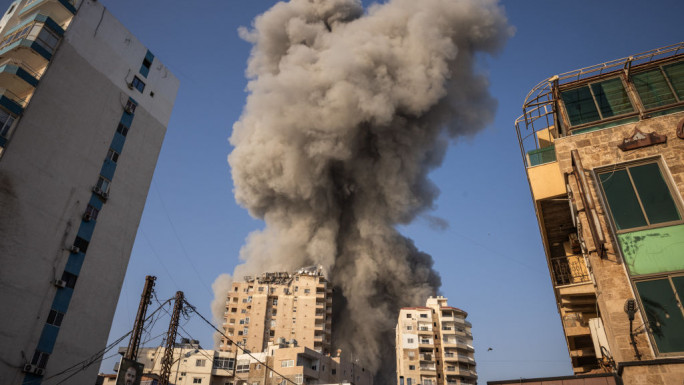
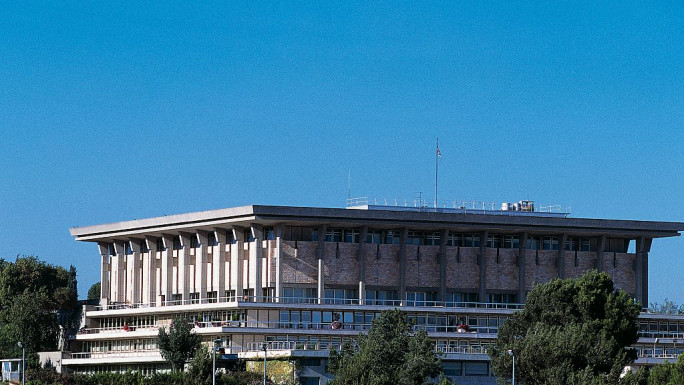
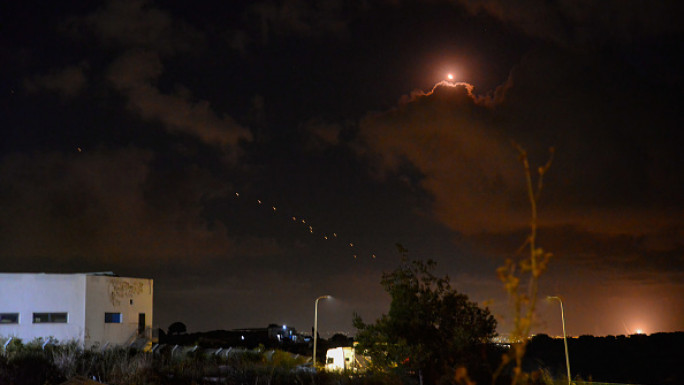
 Follow the Middle East's top stories in English at The New Arab on Google News
Follow the Middle East's top stories in English at The New Arab on Google News
